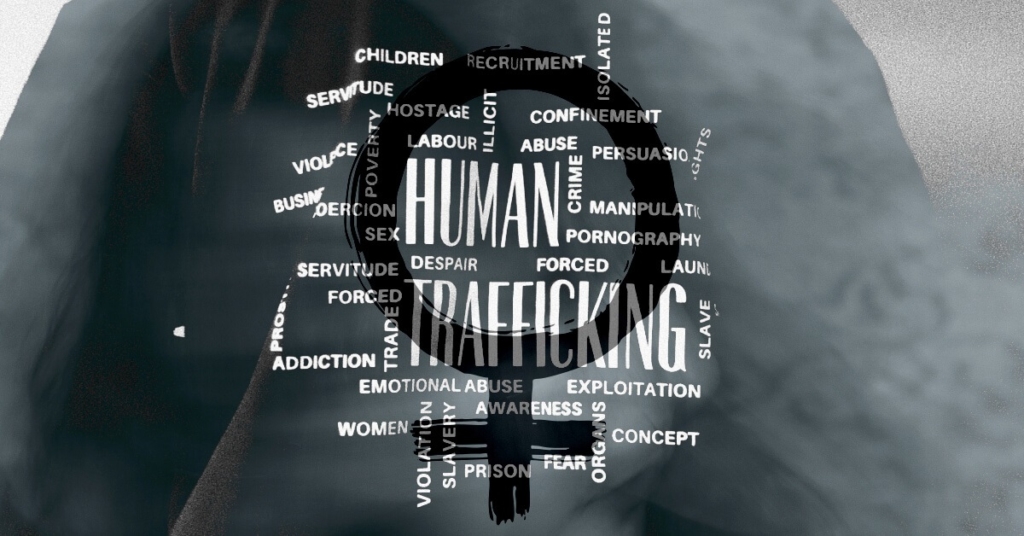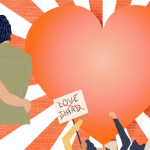
Human Trafficking Bill and the government’s Saviour Complex It denies agency to the women who it wants to save
19, Jul 2021 | Sanchita Kadam
At the outset the Trafficking in Persons (Prevention, Care And Rehabilitation) Bill, 2021 comes off as a law aiming to introduce stringent measures to tackle the inhuman crime of forcing individuals into the murky business of flesh trade. Naturally, if such an inhuman crime exists there has ought to be a law to tackle it along with a robust criminal justice system framework and collective effort at rehabilitation and integration into society of the victims.
It aims to prevent and counter trafficking in persons, especially women and children, to provide for care, protection, and rehabilitation to the survivors, while respecting their rights, and creating a supportive legal, economic and social environment for them, and also to ensure prosecution of offenders.
Inadequate time for feedback
At the same time, a law cannot blindside all other stakeholders that it will affect while focusing on just one issue/offence.
Whenever a law is brought out, there are several stakeholders that stand to get affected by its provisions and hence, it is important to review public comments on the same. However, the Ministry of Women and Child Development (WCD) uploaded the draft bill on their website on June 30, 2021, inviting comments only until July 14. Many organisations have protested this short span of time provided to give feedback on a 38-page document which should require engagement and dialogue with sex-workers to take their point of view into consideration.
In fact, on July 11, the All India Network of Sex Workers (AINSW), which is a network of sex workers’ organisations from 17 states, wrote a letter to the Ministry seeking extension of time to give their comments stating that 2 weeks was not adequate for garnering stakeholders’ views. Yet, the bill has been listed for introduction during the Monsoon Session beginning July 19. It is pertinent to also note here that as per a letter issued by the Ministry of Law under UPA II government on February 5, 2014 all draft legislation is required to be placed in the public domain for a minimum period of 30 days.
The Human Trafficking Bill was introduced in Lok Sabha in 2018 as well in Lok Sabha, however it was never introduced in Rajya Sabha. The 2018 bill dealt with trafficking, rescue, protection and rehabilitation of victims, the 2021 bill expands the scope to also include offences taking place outside India. Some other salient features of this proposed law include the National Investigation Agency (NIA) authorised to investigate offences under the law and also introduced stringent punishment of death penalty for aggravated offences.
The positives
A few positives of the bill include the widening of the scope of the definition of the word “victim” to include transgender persons, besides women and children and that it applies to offences committed outside India including persons on any ship or aircraft registered in India wherever it may be or carrying Indian citizens wherever they may be, and a foreign national or a stateless person who has residence in India. Aggravated offences that invite the death penalty include cases where the victim has died or has suffered grievous injury (such as acid attack), organ mutilation or removal of organs, or where the victim is a child. It has also widened the scope of offenders including public servants, armed forces personnel or anyone in a position of authority.
However, there are some stakeholders that have raised their objections against certain provisions and they need to be looked at.
Adverse effects on sex work
There are many sex-workers organisations that have expressed their scepticism over some provisions of the bill. To begin with, AINSW sent another letter to the Ministry registering their protest over listing the bill for introduction in the upcoming monsoon session without considering the opinion of the stakeholders even as they sought more time to respond to the lengthy bill. The letter said that they were “pained to note” that the ministry inviting comments and suggestions on the draft anti-trafficking Bill was “nothing but eyewash” and that “the Ministry has no real intention of considering, let alone accepting, any views and suggestions given by stakeholders on the Bill.”
Their contention regarding the bill is that it seeks to criminalise prostitution without preparing a roadmap for rehabilitation, and also without giving any agency to individuals who wish to be in the profession our of their own volition. The bill completely disregards the volition of a consenting adult who is a sex-worker and wishes to continue as one.
Explanation 2 of section 23 of the bill that defines the offence of “trafficking in persons” states that the consent of the victim shall be irrelevant and immaterial in determination of the offence of trafficking in persons if any of the means mentioned at (b) above is used to commit the crime. Subsection b states as follows:
(b) By means of threat or use of force or other forms of coercion, of abduction, of fraud, of deception, of the abuse of power or of a position of authority or of vulnerability, or of the giving or receiving of payments or benefits to achieve the consent of a person having control over another person
Further, prostitution is being considered as an aggravated form of trafficking under section 25 (1)(o) “where the purpose or consequence of the offence is prostitution, or any other manner of sexual exploitation of, or any other sexual offence against a victim;” which is punishable with rigorous imprisonment for a term for ten years but which may extend to imprisonment for life and shall also be liable to fine which may extend to ten lakh rupees.
As rightly pointed out by Jaffer Latief Najar, who helmed research and policy project on human trafficking, in The Wire, “Bringing consensual adult or aged sex workers into a rehabilitation plan contradicts the very idea of considering sex work as work, which sex workers have been fighting for decades. It would be a paternalistic response and would deny the dignity to such a person.”
Jaffer pointed to his research engagement with the diverse stakeholders including community members of anti-trafficking target groups points that those seen as ‘victims’ of trafficking need their own voice in the process of their welfare or justice, rather than a paternalistic or infantilised policy system of state or its representatives. He pointed out that the design of the current anti-trafficking system that creates harm, and negates their agency and voices, and hence gives power to institutions like the police, state departments and anti-trafficking “crusaders” to impose their moral and social judgement, policies and intervention programs.
Also, condemning sex work as illegal will not only eliminate the trade itself but will also lead to exploitation due to there being no legal protections. This will make sex workers more vulnerable to extortion and violence since their work is deemed illegal and they cannot seek protection under the law for the same.
Further, in its bid to make the law more stringent, it has seized the accused of any opportunity to get anticipatory bail and has made presumption of offence under section 46 when the offence is in respect of a victim who is a child or a woman or a person suffering from physical or mental disability.
There is also restriction on bail under section 49(3) where bail will be granted if court is satisfied that “there are reasonable grounds for believing that the accused is not guilty of such offence and that he is not likely to commit any offence while on bail”.
Do we need a new law?
This question needs to be asked for two reasons:
- Section 370 and 370A of the Indian Penal code penalise trafficking and have an elaborate definition of trafficking and exploitation thereof;
- There is Immoral Traffic (Prevention) Act, 1956 (ITPA) which deals with such offences.
The proposed bill seeks to delete section 370 and 370A from the Indian Penal Code and also has an overriding effect over any other law which naturally includes ITPA. Here, it is pertinent to note that the Justice Verma Committee report of 2013 which was trailblazer in changing approach of criminal justice towards crimes against women had noted that our law has many effective provisions to deal with trafficking but they are scattered in different statutes like the ITPA, Juvenile Justice Act and the IPC and they lacked synergies leading them to be underused. Under ITPA trafficking was already an offence, however it was found that it was one of the most underused provisions of the Act with an abysmal rate of prosecution and conviction. On the other hand, section 8 of the ITPA was highly abused whereby women and children who subjected to the offences under the Act were being ‘arrested’ as ‘prostitutes’.
Thus, it is clear that are existing laws which could only be amended to improve their implementation instead of introducing new law in its place and overthrow already existing mechanisms.
Is death penalty necessary?
The death penalty is introduced for any offence when the government wants to portray that it is serious about curbing the offence and it is a measure that placates the masses. However, the utility of a death penalty to actually convert into deterrence for committing that crime is debateable. Not only because trial of a criminal case takes several years to complete but also because there has been no corelation of punishment of death penalty and eventual decline in number of cases for that crime. The prime example is death penalty for rape which was introduced several years ago but it still fails to reduce the number of cases.
The government misses the mark on bringing about actual change in the criminal justice system and instead passes legislations with rosy provisions. Strengthening the system was needed rather than amplifying punishments. Even the Justice Verma report was against the death penalty and stated “in the larger interests of society, and having regard to the current thinking in favour of abolition of the death penalty, and also to avoid the argument of any sentencing arbitrariness, we are not inclined to recommend the death penalty.”
The section 26 (4) states:
(4) Where a person is convicted of an offence under this section against a child of less than twelve years of age, or against a woman for the purpose of repeated rape, the person shall be punished with rigorous imprisonment for twenty years, but which may extend to life, or in case of second or subsequent conviction with death, and with fine which may extend up to thirty lakh rupees.
If aggravated form of trafficking is committed involving more than one child then also the convict can be sentenced to death.
Other criticisms
The bill also makes abetment liable for the same punishment as the offence which means that vague terms like “promotion”, “procurement” and “facilitation” which are not properly defined could be misused and over reached by law enforcement agencies.
A Press release titled ‘Coalition Critiques Problematic Trafficking Bill 2021’ which includes comments from civil society members and legal fraternity states that “With over-broad definitions of ‘exploitation’, to pulling the rug from more de-centralised agencies dealing with restoration of bonded labour, the overarching NIA presence is likely to cause more harm than good.”
Also, by criminalising pornography, many private communications by workers in the adult entertainment industry would be deemed illegal. “Post-pandemic, sex workers use mobile phones and apps as their digital workspaces and the videos and photos they send customers and clients are essential working tools. Deeming these exchanges as sexual exploitation deprives sex workers, who are already struggling to make a living, of their livelihood opportunities,” Aarthi Pai, legal advisor, National Network of Sex Workers.
With several such issues springing up and the community most affected by this bill has myriad objections to the provisions of this bill, it would do the Parliament good to take their objections into consideration before passing a law that is supposed to benefit them.
The draft bill may be read here:
Related:
Twitter responds to CJP, removes accounts threatening Muslim women
Beyond Pride Month: Where is the commitment to Equal Rights?
Covid-19: Gauhati HC directs DLSA to provide immediate ration to sex workers, their family









